On July 1st, 2017 the Smithsonian National Museum of African American History & Culture held a 25th anniversary screening for my film Boomerang. Below are some posts from the event!
Pam Lewis Rudden
“When you’re in LA and wishing you were in D.C. with the rest of your fam, to be a part of an historical moment in (film) history… Guess I’ll just have to celebrate vicariously through my sister Robbyn’s FB post. Very proud of my cousin, Reggie Hudlin on the 25th anniversary of his film, ‘Boomerang’ and the soon-to-be-released biopic, ‘Marshall’ along with all of his accomplishments before & inbetween (e.g producer of ‘The Oscars 2016’, ‘Django Unchained’, director of 90’s classic ‘House Party, ‘Bernie Mac Show’, just to name a few)… #blackcinema #filmlegacy #familyties”
Robbyn Lewis
“My cousin Reginald Hudlin is in DC to mark the 25th anniversary of his second film “Boomerang” (1992) starring Eddie Murphy (Reggie’s first film was “House Party”). What more perfect place to reflect on African American creativity: the National Museum of African American History. Reggie said a white film critic at the time referred to “Boomerang” as “science fiction” because the man had never imagined that blacks could speak standard English, work in professional settings as high level professionals, and have romances, forget basic humanity. The historical context of black filmmaking and arts in the 1990’s — the era of Spike Lee, Denzel, Murphy et al. Reggie: my Harvard educated hero from East St. Louis. You guys remember “Django Unchained”? Or Boondocks? Yeah, Reggie. Aunt Helen Hudlin wish you were here!
Oh, stay tuned: in October, Reggie’s next film will open. It’s called “Marshall” about the life of a great American — and a great Baltimorean: Thurgood Marshall.”
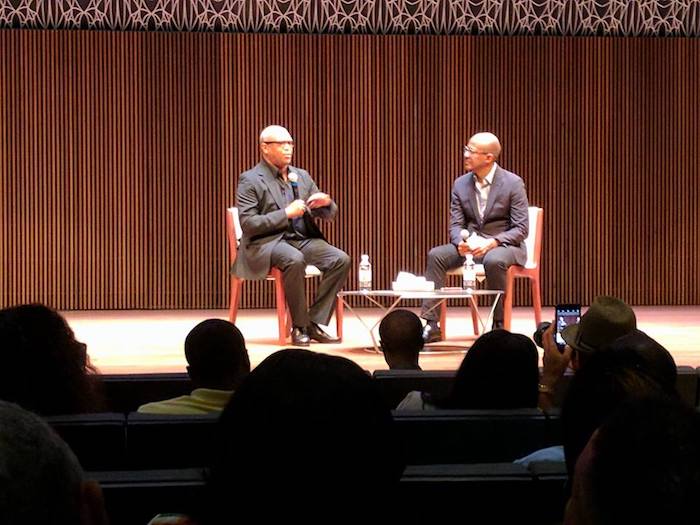
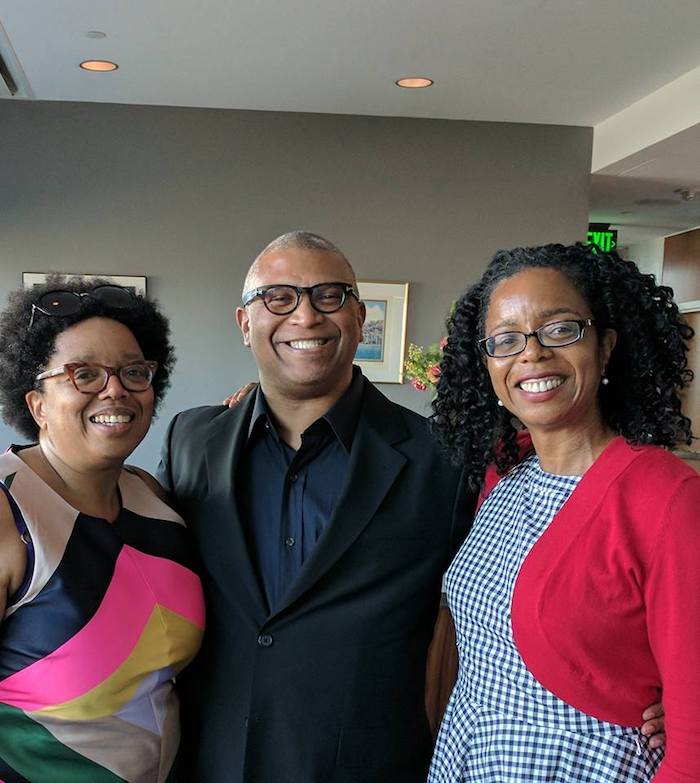
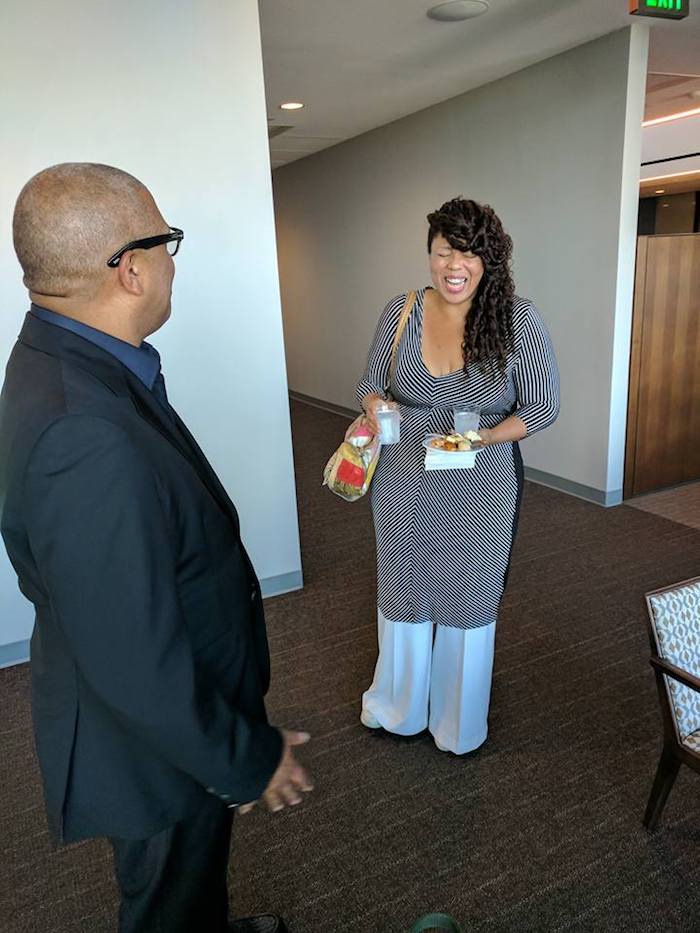
Lincoln Steffens
Tonight marks the 25th Anniversary of Boomerang! Excited to view it again with @reggiehudlin tonight.
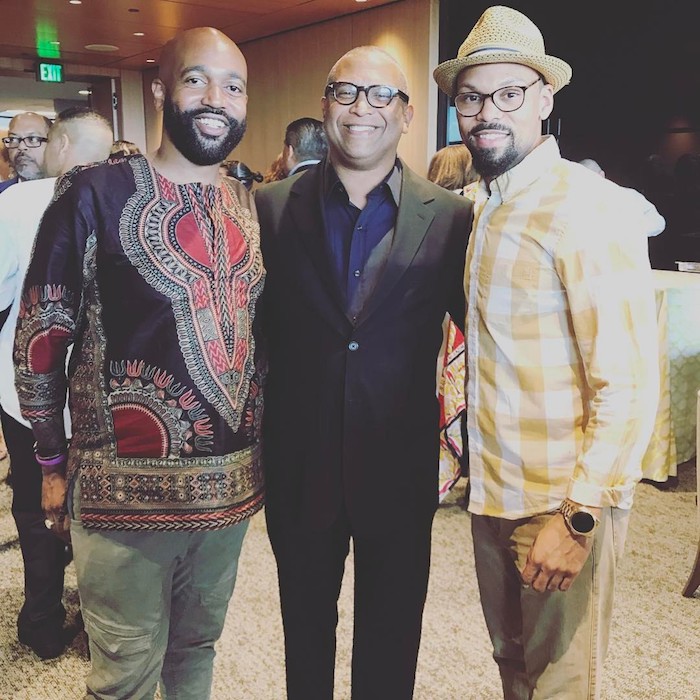
Vada Manager
Boomerang 25th Anniversary (2017) – NMAAHC Reginald Hudlin, Craig Preston, Vada O. Manager
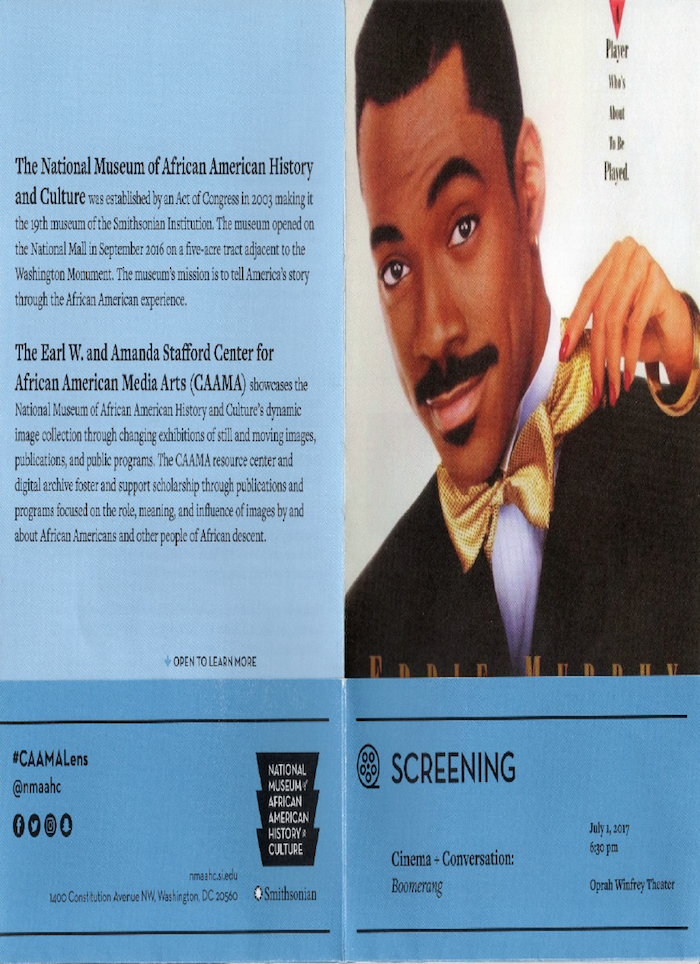
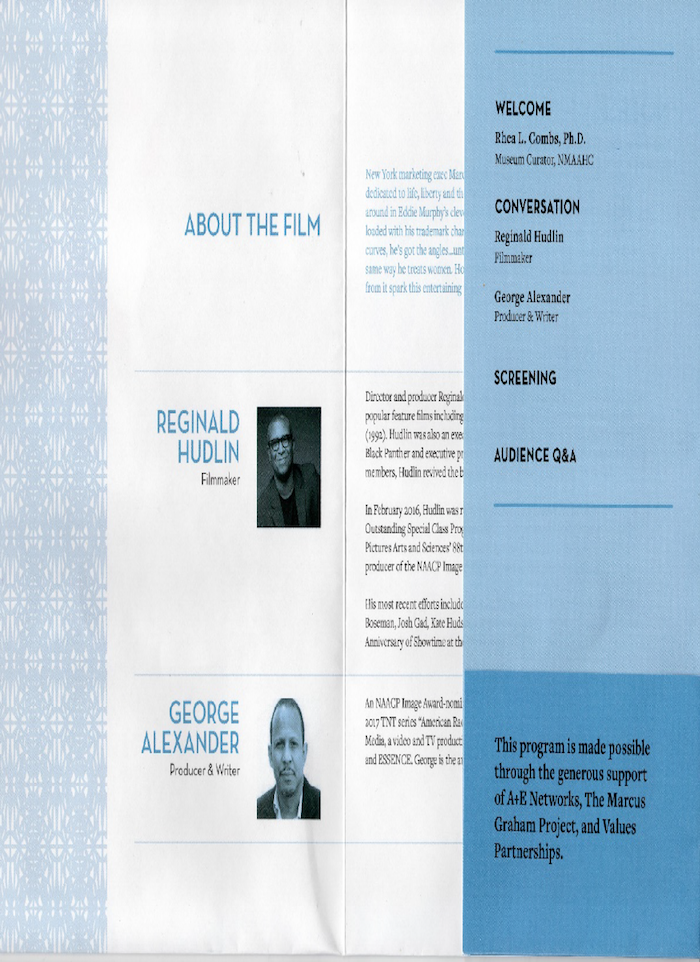
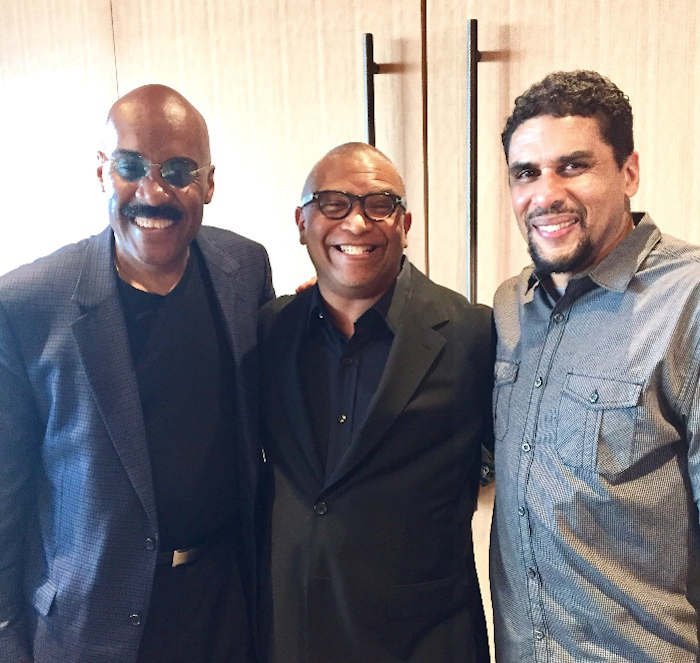
Comment
+ Permalink
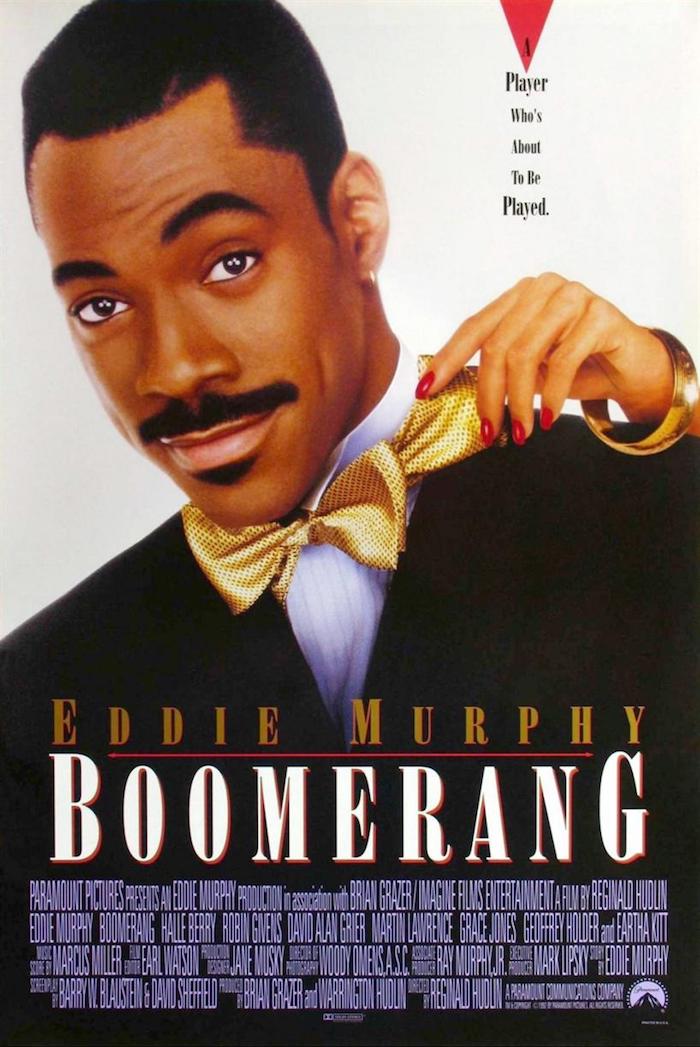
| When |
Saturday, July 1, 2017, 6:30 – 8:30pm |
|
|
| Details |
Since its release on July 1, 1992, the romantic comedy Boomerang, set in a fictional black advertising agency, has inspired an entire generation of marketing and advertising professionals. Boomerang director Reginald Hudlin in conversation with TV/Film producer and former editor-at-large at Black Enterprise magazine George Alexander, author of Why We Make Movies: Black Filmmakers.
|
| Venue |
African American History and Culture Museum |
| Event Location |
Oprah Winfrey Theater |
| Cost |
FREE – Registration is required |
Get Tickets: https://www.etix.com/ticket/p/4084331/cinema-conversationboomerang-25th-anniversary-washington-national-museum-of-african-american-history-culture-center-for-african-american-media-arts
Comment
+ Permalink

In celebration of 25 years of my second film BOOMERANG, here are film clips and selections from the soundtrack.
“Marcus darling!”
Eartha Kitt was the only cast member we had to practically beg to be in the film, but once she committed she was all in. She and Eddie basically improvised their scene in the bedroom together, and we got it all in one shot.
“pussy!”
Grace Jones was another cast member who totally committed to the role. Sometimes cast members could barely make it through a scene with her without cracking up. Off camera she was sweet and sometimes brought her son to set.
“coordinate!”
Filming the Thanksgiving dinner scene with Eddie Murphy, Martin Lawrence, David Alan Grier, Johnny Witherspoon and Bebe Drake was probably the funniest two days of my life.
“love should have brought your ass home last night!”
From the philosophy of Frances Cress Wesling to weave jokes and face slapping, we did everything in this movie. Love that music cue when Eddie is sneaking in. Marcus Miller is a genius.
A TRIBE CALLED QUEST – HOT SEX ON A PLATTER
I will never forget going down to the basement recording studio of LA Reid’s Atlanta mansion and hearing this song for the first time. ATCQ killed it.
TONI BRAXTON – LOVE SHOULD HAVE BROUGHT YOU HOME
LA and Babyface executive produced the soundtrack. While watching the scene when Halle slaps Eddie, LA leaned in and said “that’s a song title”. And history was made….
PM DAWN – DIE WITHOUT YOU
Love this song so much. I can’t believe that He and Phife are no longer with us.
BOYZ II MEN – END OF THE ROAD
This smash hit broke Elvis’ record as the longest running number one on the charts.
Which scenes and songs are your favorites?
#boomerang #eddiemurphy #halleberry #gracejones #atcq #tonibraxton #boyzIImen #pmdawn #robingivens #martinlawrence #davidalangrier #eaerthakitt #marcusmiller #lareid #babyface #johnnywitherspoon #reginaldhudlin
Comment
+ Permalink
Here’s the trailer for the film I directed about Thurgood Marshall! I can’t wait for the world to see this movie!! #MarshallMovie
Below from Deadline
“The only way to get through a bigot’s door is to break it down.” Here is the first trailer for Marshall, starring Chadwick Boseman in the biopic about Thurgood Marshall.
Before he became the country’s first African-American Supreme Court Justice in 1967, Marshall was a lawyer famous for winning the landmark Brown v Board of Education case that outlawed segregated schools. The film goes back even further, to when he was a rabble-rousing young attorney for the NAACP, and follows the story of his greatest challenge in those early days: the case of black chauffeur Joseph Spell (Sterling K. Brown), accused by his white employer, Eleanor Strubing (Kate Hudson), of sexual assault and attempted murder. Marshall fought the case alongside Sam Friedman (Josh Gad), a young attorney with no experience in criminal law.
Reginald Hudlin directed Marshall from a script by Jacob Koskoff and Michael Koskoff. Paula Wagner, Jonathan Sanger and Hudlin produced the pic, with Peter Luo and Belton Lee as exec producers. Open Road Films will release it on October 13, just after the 5oth anniversary of Marshall being sworn in to SCOTUS.
Comment
+ Permalink









